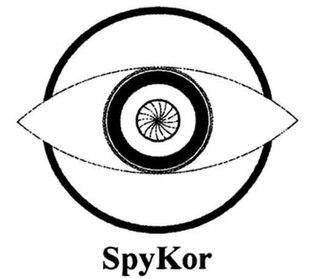Related Research Articles

A play-by-mail game is a game played through postal mail, email or other digital media. Correspondence chess and Go were among the first PBM games. Diplomacy has been played by mail since 1963, introducing a multi-player aspect to PBM games. Flying Buffalo Inc. pioneered the first commercially available PBM game in 1970. A small number of PBM companies followed in the 1970s, with an explosion of hundreds of startup PBM companies in the 1980s at the peak of PBM gaming popularity, many of them small hobby companies—more than 90 percent of which eventually folded. A number of independent PBM magazines also started in the 1980s, including The Nuts & Bolts of PBM, Gaming Universal, Paper Mayhem and Flagship. These magazines eventually went out of print, replaced in the 21st century by the online PBM journal Suspense and Decision.
Adventurers Guild was a closed-end, computer-moderated, role-playing play-by-mail (PBM) game. It was available as early as mid-1990 by the publisher, Entertainment Plus More, Inc. Multiple reviewers thought it similar to the PBM game Duelmasters, while reviewer Gordon Blair thought it better than similar games. The game received various reviews in gaming magazines in the 1990s, ranging from poor to positive.

Legends is a turn-based, role-playing game with a medieval setting. It is currently published in English by Harlequin Games. Jim Landes—owner of Midnight Games, the game's first publisher—began developing the game in 1984, eventually publishing it in December 1989 as a play-by-mail (PBM) game after over a year of playtesting. The initial game comprised a module and game system built on the publisher's existing game, Epic, and was run briefly as Swords of Pelarn before publication as Legends. The first of multiple game modules was Crown of Avalon, which allowed up to 200 players per game. Demand by 1991 was "incredible" according to Bruce R. Daniel in White Wolf. Games could be lengthy, initially between three and ten years of play, settling into an average of three years by 2002.
Middle-Earth Play-By-Mail, is a turn-based, strategy play by email and play-by-mail game set in the world of The Lord of the Rings and The Hobbit, including elements from ICE's Middle-earth Role Playing under licence, now run by GSI.
Midgard is an open-end, medieval fantasy play-by-mail game. It was published in 1984 by Time Space Simulations. Through 1996, the game passed through more than four different publishers, including Midgard USA. As of 2022, Talisman Games is the publisher. At initial publication, Midgard was computer moderated with partial human moderation.
World conquest was a play by mail wargame published for play in 1988 by Prime Time Simulations. It was an "operational level game of land, sea and air warfare".

Galac-Tac is a closed-end, science fiction, play-by-mail (PBM) wargame. It was first published by Phoenix Publications in 1982. By 1990, the publisher had changed its name to Delta Games, and then later to Talisman Games. In 2010, Talisman Games changed ownership and transitioned Galac-Tac to a web-based game. It is still available for play by postal mail or email for those with web access challenges. The game has been updated as well as reviewed multiple times in its 40 years of active play. Various reviews in the 1980s and 1990s provided both positive and negative comments as well as potential areas for the game to improve. The game has been featured numerous times in the modern PBM magazine, Suspense & Decision.

Quest is an open-end, fantasy, play-by-mail (PBM) role-playing game. Initially released in the United Kingdom in 1991, by Adventures by Mail, it later became available for play in the United States, Australia, and other countries in Europe. The game has a First and Second Age, initially comprising about twenty worlds of up to 1,000 parties controlled by players. After the year 2000, the worlds consolidated into four. The current publisher is KJC Games.
Firebreather is a heroic fantasy, play-by-mail (PBM) game.
Sirius Command is a play-by-mail (PBM) game published by Inner Dimension Games.
Empires for Rent is a closed-end, play-by-mail strategic wargame based in space. It was published by Blue Panther Enterprises.

SpyKor is a closed-end, computer-moderated, play-by-mail game. A game of low-medium complexity, it was published by Sudden Asylum, of Pflugerville, Texas and playable by mail or email. The game had a near-future setting. Eight players acted as the CEO of massive corporations vying for global domination through varying means, including war, espionage, and economics. The game received generally positive reviews in gamer magazines in the 1990s.

Swords of the Gods is a closed-end fantasy play-by-mail wargame. The game was based on the trilogy Books of Swords by Fred Saberhagen. It was published by Galactic Simulations with playtesting starting in January 1986. Ares Games later published the game. 10–15 players per game vied for domination of a fantasy world with magic swords and deities which influenced gameplay. The game received positive reviews in gaming magazines in the late 1980s and early 1990s.
Crystal Island is a closed-end, mixed-moderated, heroic fantasy play-by-mail game. It was published by Saul Betesh. Similar in gameplay to Advanced Dungeons & Dragons and Tunnels & Trolls this solo adventure was under way by 1990 as one of three starter games within Betesh's "Draconian System" which featured the expansive multi-player fantasy game DragonsKeep. Players generated a character for role-play with various attributes and skills, advancing by amassing experience points to increase levels. Players accomplished their goal by acquiring three keys and traveling to the Crystal Tower to complete a quest. The game received generally positive reviews in gaming magazines in the early 1990s.
Realpolitik is a closed-ended, computer moderated, play-by-mail (PBM) fantasy wargame. It was published by Karl Zeimettz in the US and Triad Simulations in the UK Similar to Risk, the game pitted twelve players against each other in a struggle for world domination. Combat, economics, and diplomacy were gameplay elements. The game received generally mixed reviews in gaming magazines in the early 1990s.
Thunder at Sea is a closed-ended, computer moderated, play-by-mail (PBM) naval wargame. It was published by Command Authority Games and Coconut Council in the United States and Paul Webber in the UK. The game was set in the period 1906 to 1945, using various historical scenarios.
Smuggler's Run is a computer-moderated, open-ended play-by-mail game that was published by Distant Vistas in the 1990s. Players role-played an alien character with a customizable spaceship. The goal was to maximize wealth, dueling skill, and reputation as a Pirate.
Westworld is a hand-moderated, western role-playing play-by-mail (PBM) game. Designed by George Cameron and Jack Harriman and launched in 1993, it was moderated from prison. A reviewer compared it to the PBM game Stand and Deliver. Gameplay was simple with a variety of orders possible. Players could choose various character types such as Gunslinger, Bandito, and Indian, and interact with non-player characters within the game. Westworld received some generally positive reviews from gaming magazines in the mid-1990s.
Realms of Fantasy is a closed-ended, play-by-mail (PBM) fantasy wargame. Designed in 1987 by Computer Campaigns of New Zealand, it was eventually published by Australian Wizard, Graaf Simulations in the United States, and Pagoda Games in the United Kingdom. 10 to 50 players per game roleplayed wizards vying for supremacy on a hex map that varied in size depending on the number of players. The game featured magic and combat, with diplomacy not a major factor. It received generally positive reviews in various gaming magazines in the early 1990s with reviewers highlighting its value and simplicity.
References
- 1 2 3 4 5 Rodgers 1992. p. 50.
- 1 2 3 Macagnone 1993. p. 7.
- ↑ Rodgers 1992. pp. 50, 54.
- ↑ Rodgers 1993. p. 51.
- ↑ Rodgers 1993. pp. 51–52.
- ↑ Editors 1992. p. 52.
- ↑ Rodgers 1993. p. 52.